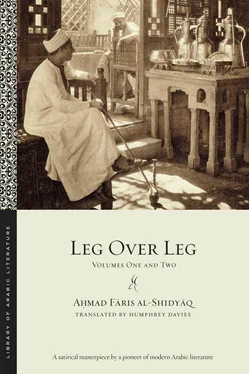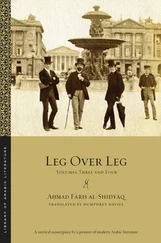You’ll find one lad denies all merit to another
While he’s alive, but once the man’s gone cold
Looks everywhere for a pleasant anecdote
On him to inscribe in lines of gold.”
2.17.6
“What good does such solicitude do one who’s dead?” I said. “None,” he replied, “except that writing verse provides, in my opinion, great pleasure. No doubt prose is the same, for both emerge from the same source, wouldn’t you agree?” I said, “Concerning the pleasures of writing, I’d say that on the one hand the writer knows something others do not, and there can be no doubt that knowledge of true things is a source of pleasure. Opposed to this, however, is a pain that outweighs it, namely, that if the writer is aware of a certain fact and wants to communicate it to others, he’ll find that most people turn a deaf ear to it.
2.17.7
“For example, a wise physician who sees the people of his country bathing in cold water when they have a fever may advise them against so doing, only for them to refuse and say, ‘The cold gets rid of the heat.’ He is happy then from the perspective that he knows the truth but sad from the perspective that he sees that everyone else is misled, and his personal happiness does not outweigh his sadness on behalf of others. Have you not observed that scholars are, without exception, weak and scrawny, and speak, sleep, eat, and laugh little, while the ignorant are fat, soft, and healthy and get plenty of food, sleep, and everything else that exists to keep the constitution balanced?” “How come, in that case,” he said, “that physicians are also fat, when they’re the equivalent of scholars in terms of possessing useful knowledge unknown to others?” I said, “The physician doesn’t see people when they’re eating, drinking, and lying with their spouses. He sees them only when they get sick and, as a result, doesn’t grieve over what they get up to. The scholar, on the other hand, observes, at all times and in all places, things that point to the errors and ignorance of the common people. Thus he has no alternative but to sorrow over the stupidity and naïveté from which they suffer.” “Do you mean,” he said, “that you’re in favor of ignorance?” “Good luck,” said I, “to those who are resigned to it.”
2.17.8
“What do you think of poetry, then?” he asked. I replied, “If it serves some interest of yours, meaning that it will help you survive, it’s an excellent thing. But if it’s just the product of some obsession and a fondness for the production of paronomasia and other forms of word play at the sight of a beautiful woman, a rose, or a garden, after the manner of most poets, who go to great efforts to compose poetry about everything that crosses their paths, or like your elegy for the donkey just now, then you’re better off without it.” “But,” he said, “the best poetry is the kind that’s born of an obsession, meaning spontaneously and not artificially. Thus, when I write a panegyric to the prince, I suffer as must anyone who has to reconcile two opposites, but what I wrote about the donkey wasn’t like that: I wrote what I did about him in an hour flat.” “On the other hand,” I said, “people look only at the outside, so your ode on the ass they’ll call asinine, while your lines on the prince they’ll call princely.”
2.17.9
“If things are as you say,” he said, “why have you foresworn writing in general but not about women, which is something that’s in abundant supply?” 642“First,” I replied, “because the writer casts himself into the pincers of people’s jaws and they proceed to rip his honor and his patience to pieces, as noted above. Secondly, the true meaning of the word muʾallif (‘author, composer’) is dishonorable, for it has the same sense, according to those who know, as mulaffiq (‘concocter’). Also, most people laugh at the former, believing that it refers to taʾlīf (‘making peace’) between two persons, 643the proper term for one who practices such things being ‘shaykh,’ which is itself repugnant to some people, especially women. 644
2.17.10
“The best titles to have here, as far as I can see, are, among the Christians, qissīs (‘priest’) and, among the Muslims, bayk (‘bey’). Qissīs is good because people kiss the priest’s hand for blessing. A Coptic woman will go so far as to wash the priest’s feet in orange-blossom water with her own hands and then preserve the water in a bottle; and when the priest gets hungry, he lugs his guts over to the house of one of his acquaintances, whose wife receives him with beaming face and does him honor, and how he stuffs them then! 645If he prefers to stay at home because of something that’s cropped up, he sends with a note to one of their houses a boy, who returns with a luncheon such as the poets of our day write odes to. As to bayk , the bey, even though honored among the people, cannot get the same from their houses as does the priest. This is because it is not easy for him to walk alone. He has to have with him, when walking out, two men, one on his right and one on his left, and these, though they show him deference and respect, harbor grudges in their hearts that impel them to watch his every move and do him harm. The exception is when they wear the costume of a servant, at which time the sight of their dress causes men to look away in awe.”
2.17.11
“How unlikely,” said the Fāriyāq, “that I’ll ever be a qissīs ! How unlikely that I’ll ever be a bayk ! The profession of priest won’t do for me because I don’t like bad writing, and I’m not fit for the title of bayk , because Eternal Providence has not been pleased to grant me, from before the beginning of time, any possibility of bungling my way into a bey-ship. The only thing left for me then is a shaykh-ship. I’m off!” I told him, “I will let you go only on condition you tell me what happens to you when you get your shaykh-ship.” “And so I shall,” replied he, “if God wills.”
CHAPTER 18: VARIOUS FORMS OF SICKNESS
2.18.1
Thenceforth the Fāriyāq, being anxious to become known by the title of “Shaykh,” devoted himself to writing verse. To that end it occurred to him to study grammar under certain Egyptian shaykhs, for he’d made up his mind that what he’d acquired in his own country wasn’t enough for the prince’s Panegyricon. In the same month, however, that he declared his intent to study, he was afflicted with a painful case of ophthalmia. When he recovered, he made his first foray into scholarship and studied with Shaykh Muṣṭafā 646a few small books on morphology and syntax. Then he got a bad case of worms, caused, he was told, by eating raw meat, a well-known custom among Levantines. Whenever his stomach hurt him during the classes, the shaykh would put it down to the wide range of topics and the intensiveness of the analysis. Once he even said to him, “Glory be to God, no one has studied this science at my hands without getting a stomach ache!” to which the Fāriyāq replied, “The stomach ache isn’t all from Zayd and ʿAmr, 647Master Shaykh. The worms have a role to play in it too, for there’s nothing I eat that they haven’t got to before my stomach does.” “Never mind,” replied the shaykh, “Perhaps the blessings of scholarship will provide some relief.”
2.18.2
Around this time, the Fāriyāq happened to be asked by an acquaintance if he could study 648with the aforementioned shaykh the book the Christians study on the Mountain, namely the Baḥth al-maṭālib . 649When this acquaintance had gone through it all, he asked the shaykh to write him a certificate allowing him to teach the book in his own country, 650which the shaykh did, showing the result to the Fāriyāq. When the latter examined it, he found mistakes in the language and the inflections, and he asked his shaykh if he might point the errors out to him. On examining them, the shaykh said, “Tomorrow I shall write him another” and he wrote him another certificate. When the Fāriyāq took a close look at this, he found that it was as bad as the first. He alerted his shaykh to the mistakes, but the latter told him, “You write him whatever you want.” This was despite the fact that the shaykh was as well versed in the science of grammar as anyone could be and was capable of devoting a whole hour to the analysis of just part of a sentence. He did not, however, practice prose or verse composition, and, as a result, all his knowledge was in his heart and on his tongue, and he was almost incapable of getting any of it out and into his pen.
Читать дальше












